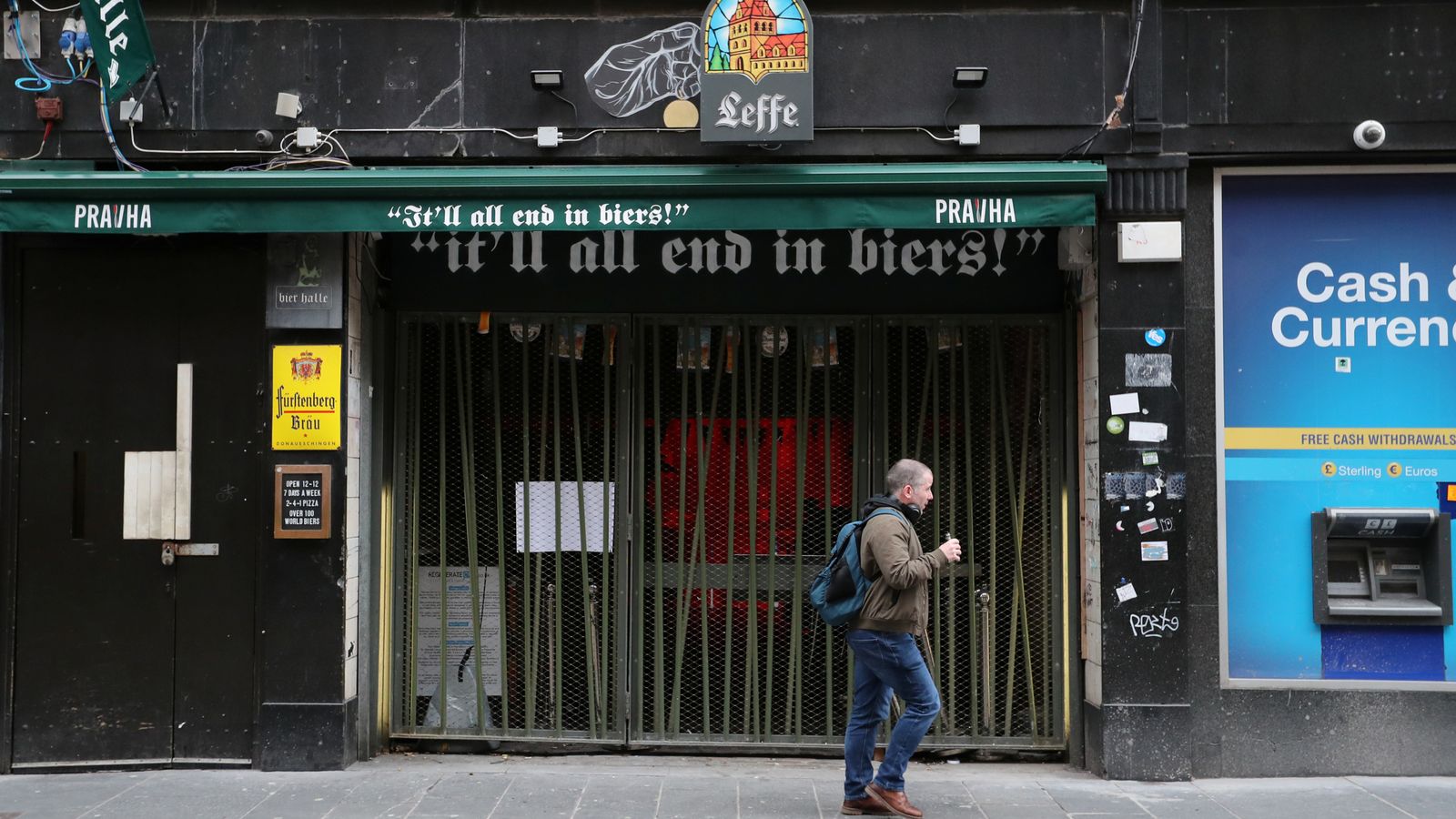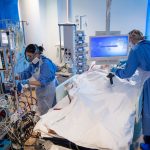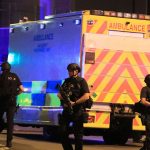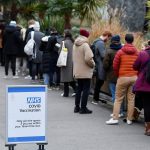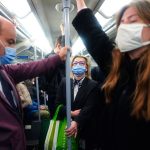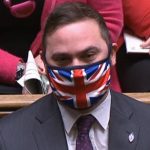High levels of coronavirus infection are already causing staff shortages in Scotland, the First Minister has warned, as she set out new guidance to slow the spread of the virus.
In the last 24-hours, Scotland has reported 5,018 new COVID-19 cases – a “sharp rise” on the recent average of 2,800 a day.
As of 5pm on Thursday, 110 of these were the new Omicron strain, up from just nine cases 10 days ago.
Nicola Sturgeon called this “perhaps the fastest exponential growth we have seen in this pandemic so far”.
COVID news live: ‘Plan C’ rumours grow amid Omicron fears
Please use Chrome browser for a more accessible video player
What new measures have been announced?
With Ms Sturgeon warning the new variant could overtake Delta “within days”, those who live with a confirmed coronavirus case – regardless of strain – must isolate for a full 10 days even if they are fully vaccinated and receive a negative PCR test.
COVID-19: UK govt to keep ‘restrictions under review’ after Omicron data reveals ‘very challenging new information’, says Gove
COVID-19: Two jabs offer little protection against Omicron – but booster makes vaccine at least 70% effective
COVID-19: Omicron cases rise sharply by 448 and all coronavirus infections top 58,000 in latest UK daily figures
There will be “careful exemptions” for critical workers.
Non-household contacts who are fully vaccinated will be able to leave isolation once they have received a negative PCR test result.
The chart above shows confirmed cases in Scotland – but not all samples are being tested so it should be taken only as an indication of how Omicron is growing. It is very likely to be far more widespread than the chart suggests.
The first minister has also advised it would be “sensible” to postpone Christmas parties.
Public Health Scotland (PHS) urged people to defer celebrations given the number of COVID-19 outbreaks, particularly those caused by the new Omicron variant, that have been linked to Christmas parties.
She told a coronavirus briefing on Friday she agrees with this advice as evidence points to Christmas parties being “super-spreaders” of the new variant.
However, this is guidance only and if people choose to meet others – or go Christmas shopping – they should take a lateral flow test.
The chart above shows the percentage of Scotland COVID cases suspected to be Omicron. This is an estimate of how widespread Omicron is in Scotland.
What rules were already in force?
Since the beginning of October, people have been required to prove their COVID-19 status to attend certain venues and events – and this will remain unchanged.
The most straightforward way this is done is using the COVID Status app on a smartphone. The app contains details of which vaccines a person has received and will generate a QR-code for the fully jabbed which they can display when entering restricted venues, such as nightclubs.
Follow the Daily podcast on Apple Podcasts, Google Podcasts, Spotify, Spreaker.
Homeworking remains guidance only, with “employers being encouraged to support a greater degree of working from home than pre-COVID-19” and businesses asked to consider “whether staff need to be in an office at all”.
The law around face coverings is still in place and they are required in most indoor venues, including shops, bars, cafes, churches, and on public transport.
